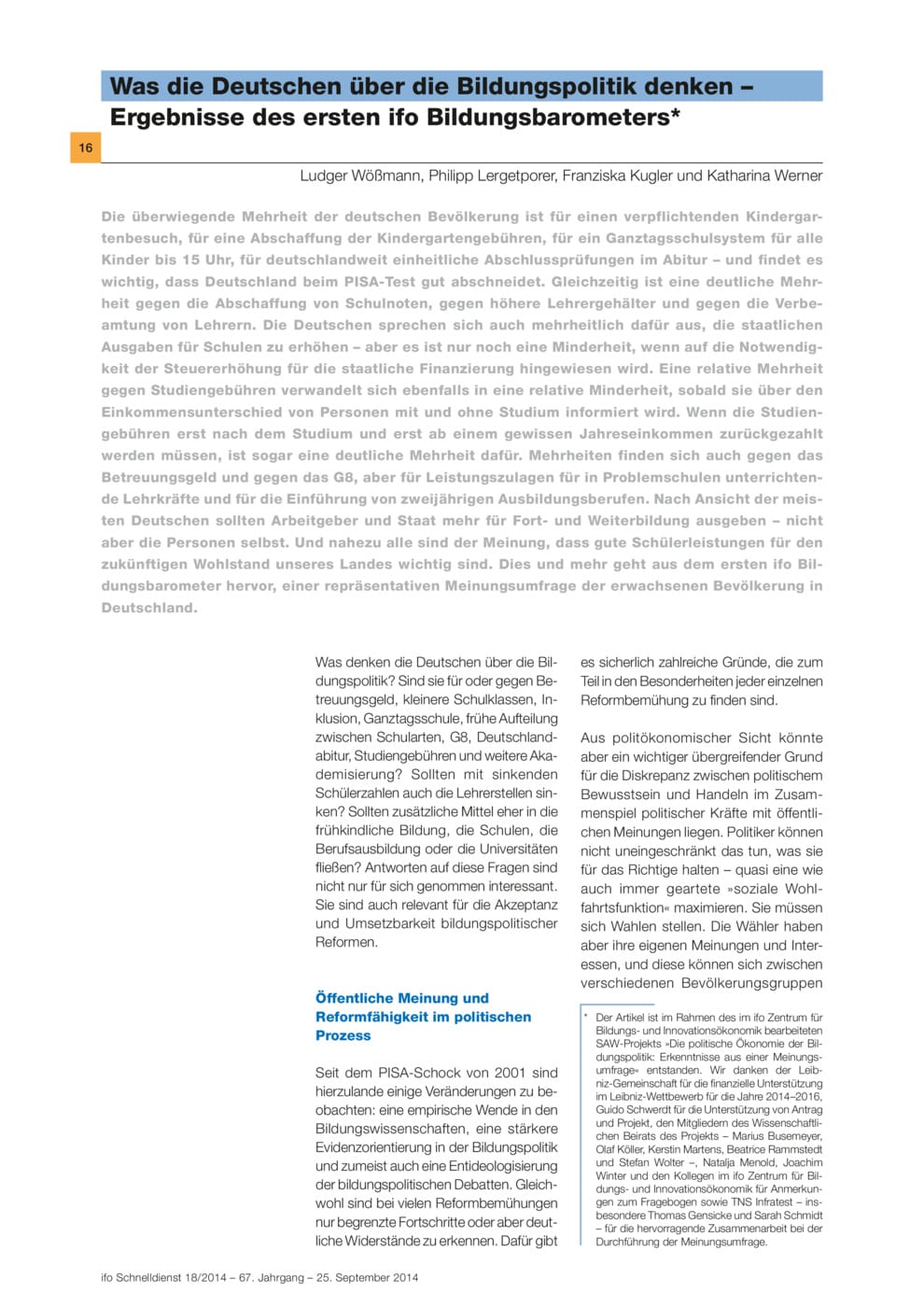What Germans Think About Education Policy – Results of the First Ifo Education Survey
ifo Institut, München, 2014
ifo Schnelldienst, 2014, 67, Nr. 18, 16-33

The overwhelming majority of Germans is in favour of compulsory kindergarten attendance, an abolition of kindergarten fees, a day-school system for all children until 3 p.m., nationwide final exams in the Abitur (A-level equivalent) and thinks it important that Germany performs strongly in the PISA test. At the same time, a clear majority is opposed to the abolition of school marks, higher salaries for teachers and the appointment of teachers as tenured German civil servants. The majority of Germans are also in favour of increasing state expenditure on schools – although this turns into a minority if tax increases are required to achieve this spending increase. A relative majority opposed to higher education tuition fees turns into a relative minority as soon as participants are informed of the income gap between persons with and without a university education. If loans covering tuition fees only have to be repaid once individuals earn a certain annual income, a clear majority is even in favour of them. Majorities are also opposed to childcare benefits and the G8, but in favour of performance-related bonuses for teachers working in problem schools and the introduction of professional two-year training schemes. In the opinion of most Germans, employers and the State should spend more on further education measures, not individuals themselves. And nearly all survey participants believe that strong school performance is important to Germany’s future prosperity. These are just some of the results of the first Ifo Education Survey, a representative opinion poll of Germany’s adult population.